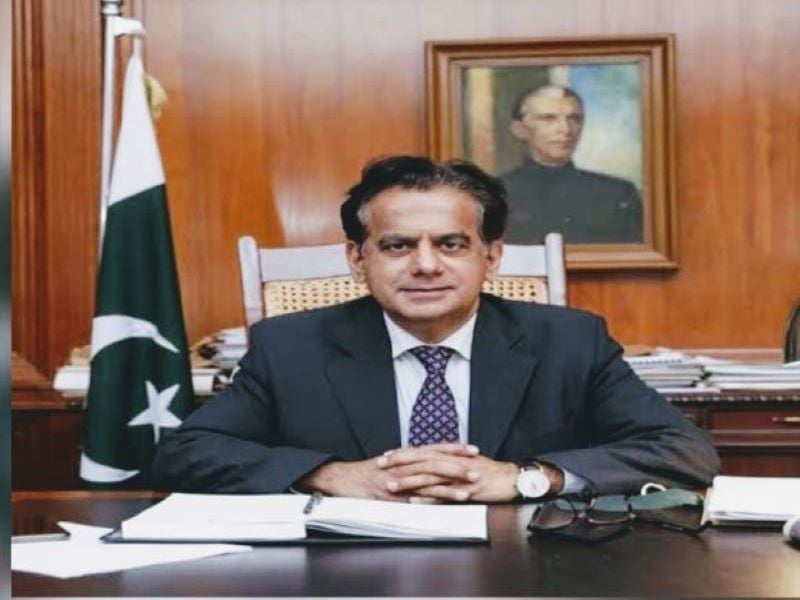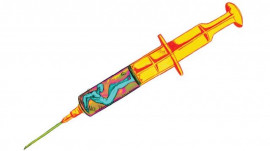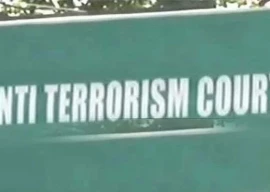
The Sindh High Court issued notices on Tuesday to the provincial government, chief secretary and other parties over a petition against additional charge of Karachi Commissioner being given to Iftikhar Shallwani who also serves as the city administrator.
Before a two-member bench, headed by Justice Nadeem Akhtar, the petitioner maintained that the office of Karachi administrator falls under the Karachi Metropolitan Corporation while the office of Karachi commissioner falls under the Board of Revenue. The petitioner contended that the Supreme Court had declared it illegal to give additional charges to officials deputed at such posts. The petitioner argued that it was against the law and prejudicial to all such officers who were in line to be posted as commissioner.
Why was Shallwani given additional charge of commissioner, asked Justice Akhtar. Wasn’t there any other eligible officer in the entire province to be appointed as commissioner, he remarked.
The petitioner prayed the court to direct the relevant authorities to take back the additional charge given to Shallwani, who was appointed as the Karachi administrator after the tenure of elected local body representatives ended in August 2020.
The court issued notices to Sindh chief secretary, the provincial government and other parties, seeking their replies by the second week of January.
Provision of gas in villages
Meanwhile, the SHC has held the provincial government and the Sui Southern Gas Company responsible for the unavailability of gas in Sindh’s rural areas. In its written verdict over the contempt of court plea pertaining to the non-provision of gas to villages near oil and gas reservoirs in Sindh, the court maintained that the Supreme Court’s directives could not be implemented due to the negligence of both these parties.
There was a lack of communication between the SSGC and the Sindh government, noted the verdict. The former had maintained that the network of gas pipelines could not be laid in the said villages as the provincial government had not provided land for it. Whereas the Sindh government alleged that the SSGC did not file any request to acquire land for this purpose, according to the verdict.
The court directed the Sindh chief secretary and SSGC director-general to work together for the completion of the gas pipeline network, warning that it would not accept any excuse for delays.
In the written verdict the court rejected the reports submitted by deputy commissioners of 29 of Sindh’s districts, regarding the provision of bonus and community welfare funds from oil and gas companies and issued a show-cause notice to the Jacobabad deputy commissioner for failing to appear before the court despite summons.
The court also rejected the report pertaining to developmental work in Larkana district and stated that it appears that the funds have not been used properly in the district. It was observed in the verdict that the Larkana DC did not seem capable of compiling a single report. The court directed the Larkana DC to submit a detailed report at the next hearing.
The deputy commissioners were further directed to attach pictures of every project along with their expense reports.
Besides, the court noted that the Malir deputy commissioner failed in carrying out developmental works and rejected the report submitted by him. Pictures submitted by the Malir DC indicate that funds had only been given to them for the election campaign.
The court also restricted invitation of politicians as chief guests in any such projects. The written verdict further observed that Rs2 billion was given to Matiari district but it appeared that no developmental work was carried. The court directed relevant authorities to carry out audits of funds used in Matiari.
The court issued show cause notices to the deputy commissioners of Central district in Karachi and Matiari over their absence in court and termed the report submitted by the Sukkur deputy commissioner disappointing.
Published in The Express Tribune, December 9th, 2020.


1731476617-0/Sandra-Oh-(2)1731476617-0-165x106.webp)















COMMENTS
Comments are moderated and generally will be posted if they are on-topic and not abusive.
For more information, please see our Comments FAQ